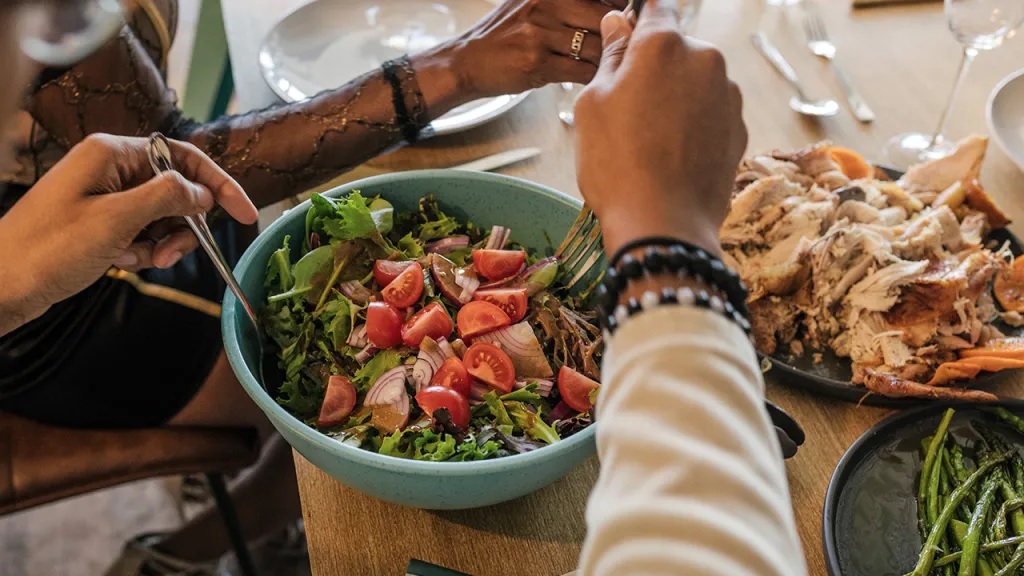
As food prices have crept up, eating healthy has gotten tougher for many Americans. An overwhelming majority (90%) of adults say healthy food has gotten more expensive in recent years.
And 69% say these price hikes make it more difficult for them to eat healthy. These are among the findings from a Pew Research Center survey conducted from Feb. 24 to March 2, 2025, among 5,123 U.S. adults.
Beyond supermarket sticker shock, Americans’ mealtime choices also are playing out against the backdrop of several other dynamics: rising obesity levels, proliferation of food delivery options, and a wave of diet trends and recommendations on social media. We conducted this survey to understand U.S. adults’ priorities and behaviors around healthy food and eating. This study builds on our previous work looking at Americans’ attitudes about and experiences with emerging health issues.
Poor diets are a driver of major public health challenges in the United States, like obesity and heart disease. And nutrition experts say that many U.S. adults have unhealthy diets.
When asked how healthy their own diets are, U.S. adults largely give middling reviews. About six-in-ten say that, overall, their diet is somewhat healthy. A much smaller share say their diets are extremely or very healthy (21%). And one-in-five say their diets are not too or not at all healthy.
Older, upper-income and highly educated adults are more likely to say they have healthy diets than younger, lower-income and less educated Americans.
Notably, Republicans and Democrats offer similar views of the healthiness of their own diets, as well as the factors that shape their food choices more broadly. Food and diet have been emphasized in the current presidential administration, with Health and Human Services Secretary Robert F. Kennedy Jr. prioritizing tackling obesity and working to ban certain food dyes.